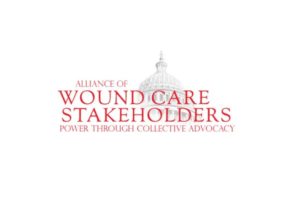 The Alliance of Wound Care stakeholders recently submitted comments to the Centers for Medicare & Medicaid Services (CMS) to demand wound care is included in the US Department of Health and Human Services (HHS) and CMS grant waivers, as well as be addressed in the regulatory flexibilities being implemented to facilitate medical care in the USA during the pandemic.
The Alliance of Wound Care stakeholders recently submitted comments to the Centers for Medicare & Medicaid Services (CMS) to demand wound care is included in the US Department of Health and Human Services (HHS) and CMS grant waivers, as well as be addressed in the regulatory flexibilities being implemented to facilitate medical care in the USA during the pandemic.
The Alliance is a non-profit, multidisciplinary trade association of physician specialty societies, and clinical and patient associations whose mission is to promote evidence-based quality care and access to products and services for people with chronic wounds (diabetic foot ulcers, venous stasis ulcers, pressure ulcers and arterial ulcers) through advocacy and educational outreach in the regulatory, legislative, and public arenas. These most recent comments were written with the advice of Alliance clinical specialty societies and organisations with expertise in treating complex chronic wounds and in wound care research.
While there are several measures that CMS have taken in recent months that the Alliance praise, such as increasing the payment for remote patient encounters and enabling clinicians to deliver evaluation and management services through telemedicine visits, the Alliance of Wound care stakeholders also has a few specific requests and recommendations.
Wound centres without walls
The Alliance has taken CMS’ concept of “hospitals without walls”—i.e. a provider-based department temporarily relocating to a patient’s home to offer treatment outside of the hospital—and applied it to the wound care sector. “Prior to COVID-19,” the Alliance state, “when services were provided to a wound care patient—it was a team effort. The nurses would prep the patient for the physician/qualified health professional (QHP) visit by conducting a systems review, taking vitals etc. Once the physician/QHP visit was over, the nurse would provide the post care coordination.
“During this public health emergency, these same services are being provided. While CMS has determined that the physician/QHP would be reimbursed for their services whether their services are being performed in the office, the hospital, or via telehealth, the provider-based department is being paid just the origination fee despite providing the same services—if not more. Thus, the Alliance has concerns that the US$26.00 origination fee that CMS has proposed as the reimbursement for services provided when performed in this temporary relocation site is not adequate for the services that are actually being performed on a regular basis. The US$26.00 fee suggests that CMS does not believe that any significant services are being provided during these visits.
“[…] We recommend that CMS should permit hospital owned outpatient wound/ulcer management provider-based departments to use the clinic visit levels that are determined by their mapping tools for their services of supporting the telehealth visits provided by their wound/ulcer management physicians/QHPs. In most cases, the mapping systems will track to 99211, 99212, or 99213. This will allow for increased, but appropriate, reimbursement for services that are being performed by the provider based department to support the telehealth visits provided by their wound/ulcer management physicians/QHPs.”
The Alliance also specifically recommends that CMS publish information as to when to use the G0463 code, that the Appropriate Use Criteria be delayed, that the reporting period for all Merit-based Incentive Payment System categories for CY2020 be modified, and that CMS provide a temporary waiver of the Standard Written Order “Practitioner’s Signature Requirement” allowing suppliers to bill without a practitioner’s signature.
The Alliance of Wound care stakeholders’ ongoing advocacy work during the COVID-19 pandemic
These new recommendations from the Alliance are part of the group’s ongoing advocacy work. In March, at the beginning of the COVID-19 pandemic, the Alliance developed a position statement to protect wound care. It issued a letter on the same topic in April; in May, it released further comments and recommendations, and in July, the Alliance sent out requests and recommendations surrounding specific policies that, with regulatory relief, could remove barriers to treat wound care patients efficiently and effectively during the public health emergency.
“Our evolving requests for specific liabilities are based on the real-world, front-line experiences of the wound care clinicians who are among our 20+ clinical association members,” an Alliance spokesperson tells iWounds News.













